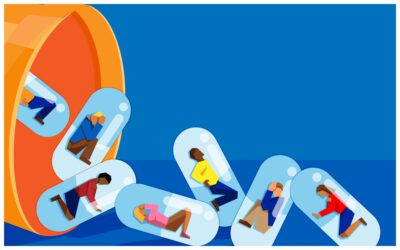[title subtitle=”words & Images Laurie Marshall”]
“The cow is of the bovine ilk; one end is moo, the other milk.”
— Ogden Nash, Free Wheeling
For decades now, the unique taste of raw milk has been a memory of days gone by. It is now known only to our elders, and perhaps those living in communities where it is not uncommon to see a Jersey cow standing in the yard beside a small farmhouse. For the rest of us, milk has always been snowy white in color and available only from a grocery store in jugs and cartons. But thanks to the passage last year of House Bill 1536, more and more people in Arkansas are learning what milk straight from the cow tastes like.
The bill’s sponsor, Rep. Randy Alexander of Springdale, presented the legislation to support the idea that Arkansas citizens are capable of making their own choices about what kind of food they want to serve to their families. After several years of discussion and revision, the most recent draft of the bill passed in August of 2013.
Rep. Alexander stated before the House Agriculture Committee, “Safety’s not the only question, or in my mind even the most important question that we have to consider here. In my view, diluting the God-given freedom of our people is what constitutes an unacceptable risk. That erosion of our rights is a clear and present danger to our citizens and even to our way of life.”
Under the new law, producers can sell up to 500 gallons of unpasteurized milk, but they can only sell directly from their farm. Standardized signs must be posted at the point of sale notifying buyers that the milk is unpasteurized, the farm and cows are not inspected by the state, and the buyer assumes all liability for any health problems that may arise from consuming the milk. The container of milk must also bear a label with the name and address of the farm along with same statement mandated for the sign.
Mariah and Ira White operate Summer Kitchen Farm, an eighteen-acre property in south Fayetteville on which they raise fresh eggs, pasture-fed pork and chicken, and produce for their CSA farm-share program. Their three dairy cows can produce three to four gallons of milk per day, and they currently provide milk to forty-five local families, but the Whites still have a waiting list for the half-gallon mason jars they sell.
The Whites’ story is similar to other farmers who are selling unpasteurized milk. “We started with one dairy cow for ourselves and a few friends and really fell in love. [The cows] are amazing animals with sweet and sassy personalities. Dairy is a big part of our diet and provides a great source of feed for our hogs, which makes for the best tasting pork.” The addition of raw milk to the farm’s list of available products also provides added income that is dependable year-round, which is important during winter months when their produce sales are reduced.
Why buy raw?
According to consumer research, the unique flavor that is found in unpasteurized milk is one of the most popular reasons to drink it. The sweet grasses and other forage plants available to cows in the field provide a flavor with more complexity than the standard pasteurized milk found in the grocery store. The texture is also creamier because the natural fats are still intact.
But aside from a taste, many people believe raw milk is a healthier option because pasteurization kills not only pathogens such as E. coli, salmonella and listeria, but also destroys beneficial bacteria, proteins and enzymes. The Whites claim that most of their customers are interested in the nutritional content and enzymes found in unpasteurized milk.
In a survey conducted by the Weston A. Price Foundation, eighty percent of the 700 families surveyed reported a reduction or elimination of digestive problems when they switched to raw milk. A large study done in England and reported in the publication Clinical and Experimental Allergy in 2007 concluded that consumption of raw milk may offer protection against asthma and allergies similar to the way consumption of local honey has been found to reduce allergy symptoms by “immunizing” the individual through consumption of the same pollens that are likely to cause problems for sensitive individuals.
For those interested in connecting with their food supply, the availability of unpasteurized milk is just one more way to support their community. The restriction in HB 1536 that requires consumers to buy raw milk directly from the farm also forces a relationship between consumer and farmer – something many people, including the farmers, appreciate. As the Whites say, “Our role as farmers in the community…we can’t tell you how good it feels to feed people good food and the people in this community have been overwhelmingly supportive. We absolutely love what we do.”
Food Safety Issues
The discussions on the path to legalize raw milk in Arkansas included arguments leveled by the Arkansas Agriculture Department, the state’s Milk Stabilization Board and the Arkansas Department of Health, all of which voiced concern that the unpasteurized milk could be contaminated with pathogens that can cause illness.
According to the Centers for Disease Control, there were 24,000 foodborne illnesses reported each year from 1990 – 2006. Out of that annual number, 315 (or 1.3%) were reported to be caused by dairy products. Illnesses associated with dairy products generally involve gastrointestinal discomfort, and only a handful of deaths have occurred from the consumption of pasteurized milk over the past decade.
There has not been a single death attributed to raw fluid milk since the mid-1980s, in spite of the fact that approximately 10 million people consume it regularly. It should be noted that the FDA banned interstate sales of unpasteurized milk in 1987, although individual states determine how raw milk is bought and sold within their borders.
The bottom line is that the option of buying raw milk is now available for those who are interested in consuming it. Mariah and Ira White, their children, and the two interns who work on their farm drink upwards of ten gallons a week, without experiencing illness. They believe their customers are able to decide for themselves if raw milk is right for them. “The sale of the milk, the cows and the farm is completely unregulated. It is up to the consumer to educate themselves about raw milk and inspect the farm where they buy from.” They will be expanding their CSA offerings in the future, as well as adding bee hives to their farm. Perhaps they truly are living in the land of milk and honey.
[separator type=”thin”]
For a list of farms that sell raw milk in Arkansas, visit realmilk.com/real-milk-finder/arkansas/.




